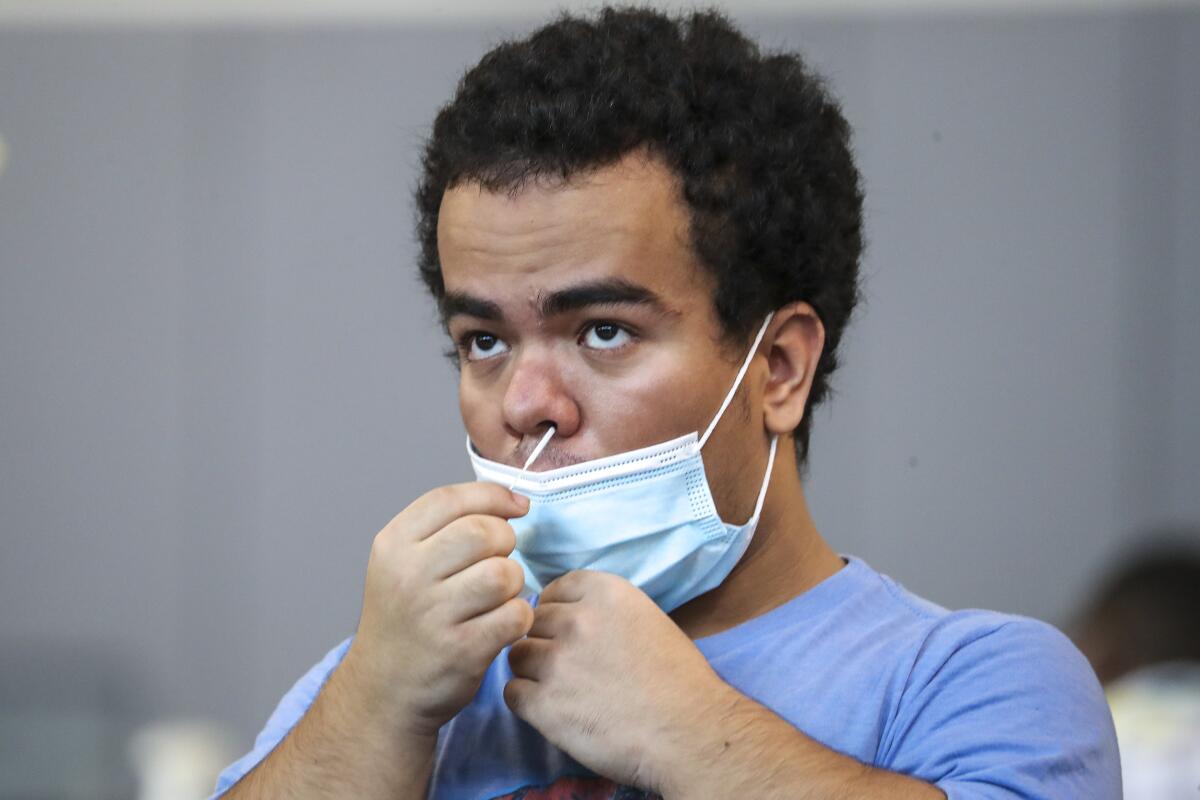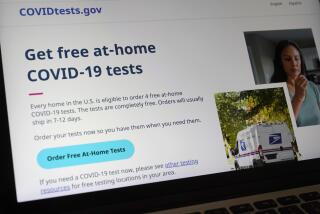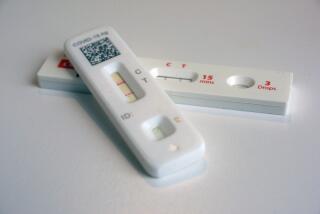Biden is expanding rapid COVID test production for home use. Hereâs what to expect

Ramping up efforts to rein in COVID-19 infections, President Biden is invoking the Defense Production Act to boost the availability of rapid testing throughout the country.
According to the president, the U.S. has from the outset done too little testing for the coronavirus, hampering efforts to detect outbreaks and limit a disease that can be spread by people who show no sign of illness.
Although a little more than half of the country is fully vaccinated, the Food and Drug Administration and the Centers for Disease Control and Prevention still advise that those who are experiencing symptoms of COVID-19 be tested â vaccinated or not.
At-home testing and self-administered tests have become popular because of their ease of use and quick results.
What is a rapid test?
Terms like rapid test, PCR test, antigen test and antibody test have been thrown around for more than a year now, but what exactly do they all mean?
A COVID test can look either for fragments of the virusâ genetic material, which is what a PCR test does, or for proteins associated with the virus, which is what an antigen test does. Rapid tests are antigen tests.
And as with at-home COVID tests that require you to mail your samples to a lab, you can administer a rapid test to yourself â in this case, by swabbing your nasal or oral cavity, depending on the type of test and its directions.
Whatâs different is that a rapid test will typically give you the results in less than an hour â hence the ârapidâ in its name â which makes it popular among those who are required to test regularly for work or who are more COVID-19 conscious.
These tests show only an active infection of COVID-19 or other respiratory pathogens. If youâre looking to see if you have antibodies in your system from the vaccine or a previous infection, these tests will not provide you with those results.
Symptoms of COVID-19 can manifest anywhere between two and 14 days after youâve been exposed. But if youâre having any symptoms of COVID-19, get tested as soon as possible.
Where can I find a rapid test?
Some pharmacies have carried rapid tests since the FDA approved them for home use, but availability has been limited. Biden said major retailers should have the tests for sale next week, and theyâll be offered at cost. Amazon, Walmart and Kroger â the grocery chain that owns Ralphs and Food 4 Less â are the three outlets that the administration said would carry the tests.
For at-home testing, itâs important that you purchase a test thatâs been approved by the FDA for the most accurate results. Each type of test, molecular or antigen, has its own approved list.
If you think you have COVID-19, however, your doctor will be able to order a test to be performed for you. If you want to be tested just to be safe, you can visit a free community-based testing site.
To find a local testing site near you, visit the Los Angeles County website.
How accurate is a rapid test?
Rapid tests first emerged at the beginning of the pandemic and have been used on a regular basis to diagnose individuals with COVID-19. But how accurate are they really?
Researchers say antigen-based tests arenât nearly as accurate as the more time-consuming PCR tests. According to Healthline, a review of studies in March concluded that the rapid tests reliably avoided false positives â that is, finding COVID-19 in someone who had not actually been infected â and they correctly identified active infections in 72% of the people who were showing symptoms, on average. For those not showing symptoms, however, the rapid tests correctly identified active infections in only 58% of the cases on average.
The FDA and CDC maintain that if you are exhibiting any COVID-19 symptoms, you should be tested immediately.
More to Read
Sign up for Essential California
The most important California stories and recommendations in your inbox every morning.
You may occasionally receive promotional content from the Los Angeles Times.











